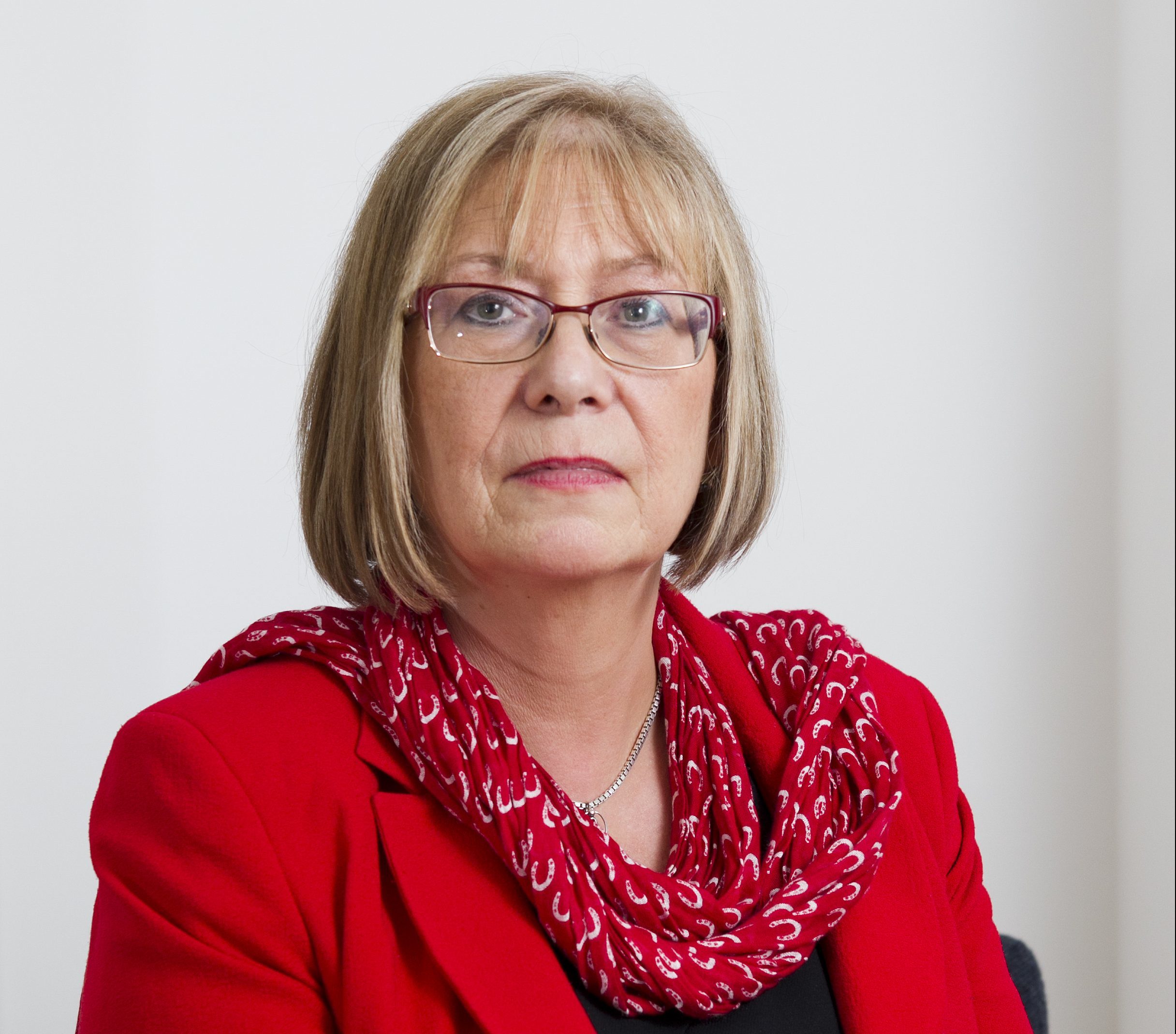
STANDING in a packed Holyrood meeting room for an event to commemorate the Scottish veterans of the Spanish Civil War, Elaine Smith suddenly dropped to the floor.
When the Labour MSP eventually returned to work she was in a wheelchair.
Ms Smith has spent decades battling both a debilitating thyroid condition and the doctors, who she says were too slow to diagnose the condition that ruined her life.
An estimated 100,000 Scots, nearly all of whom are women, have an underactive thyroid – a condition which can inflict a terrible physical and mental toll.
Symptoms range from tiredness to depression, so diagnosis can take years, with sufferers then relying on pills to replace the hormones the thyroid isn’t making.
Ms Smith, 54, an MSP since 1999, today speaks out to highlight patients’ fears after doctors were told to curb prescriptions of specialist thyroid medication, known as T3 (pictured right), because of rising costs.
She said: “I now know it was in my mid-20s when things started to go wrong.
“I had always been slim and suddenly I was putting on weight for no reason – I was literally eating lettuce and noting could stop it.
“The GP was investigating me and my husband for fertility issues when she finally tested me for an underactive thyroid when I was about 31.
“She found it was so underactive that she phoned me at home on a Sunday night, which was unusual to say the least, and said: ‘I don’t know how you can function right now’.”
Her condition improved, however, after being prescribed T4, a form of thyroid medication.
She said: “Fairly quickly I was better and I fell pregnant, which was amazing after trying for so long.”
Life settled down for the Central Scotland MSP but between 2005 and 2009 Ms Smith became increasingly ill with symptoms including dizzy turns, exhaustion, headaches and hair loss – issues she said were accelerated when she stopped smoking.
Ms Smith said: “Initially I was misdiagnosed with the menopause and then depression.
“Following an emergency admission to hospital after collapsing, I was released, still unwell, and diagnosed with a kidney infection and low blood pressure.
“I was tested for many diseases, put on a heart monitor and was given a brain scan.
“In the meantime I was becoming too ill to work and eventually, after collapsing at a parliamentary event in 2009, I was signed off work.
“These were the darkest moments, it was truly awful at its lowest points.
“Some days it was a real triumph just to make a pot of soup.
“I had a family and I wanted to provide for them but I was in a wheelchair every time I had to go out the house.
“The final diagnosis was when the doctor said I had ME, but to me that was a dustbin diagnosis so I fought it.
“The symptoms are similar, but I said I already had an existing chronic condition and it was clear something had changed within that.
“It was very difficult. I wasn’t empowered, but the GP finally got fed up with me and said OK, here is a referral.”
That referral was to Dr Anthony Toft, a world expert on thyroid problems, who was working at the Edinburgh Royal Infirmary.
Dr Toft diagnosed that Ms Smith should be taken off the T4 medication and put on T3, a move which had a dramatic impact.
“Within a few weeks I began to feel better and a few months later I was back in parliament,” explains Ms Smith.
“There are hundreds of Scottish women on T3, including me, who have been saved from a slow, lingering death and there are hundreds more who could be saved.
“If I think about what would have happened without Dr Toft’s diagnosis then I certainly would not still be an MSP, I would be invalided and I genuinely think I might be dead.”
Earlier this year it was revealed the cost of the T3 medicine used in the UK has soared from 16p per tablet to £9.22 over the past decade.
Concordia, which makes the drug form of T3, also known as liothyronine, says it is a complicated drug to produce and changes demanded by regulators has made a price rise necessary.
The soaring costs now mean GPs are only allowed to dish out the drug if its use has been approved by a consultant who has seen the patient.
There is also wider a push to move people on to the cheaper T4 drug.
However, around one in 10 thyroid sufferers cannot function on T4 and still require the T3.
Campaigners accuse health boards of making the process of getting T3 more difficult with many sufferers now resorting to buying the tablets overseas in countries such as Turkey, where 100 tablets costs £1.25 compared to the UK where the same packet will cost the NHS £922.
Some experts have called for a rethink on the approach to treating thyroid problems.
Last month, Dr Toft said: “The current guidelines for T4 replacement therapy are not fit for purpose and the continued reluctance to approve additional treatment with liothyronine [T3] denies the patient the precision medicine which we are encouraged to adopt.”
And Rudolf Hoermann, a consultant endocrinologist who advises the Thyroid UK charity, said: “It is not so much a matter of improving thyroid tests and guidelines, but a better understanding and application of the context sensitive nature of the interpretation of those tests that is widely lacking.
“Repeated testing without a clue carries a high risk for sick people being misclassified healthy or healthy people being labelled sick.
“Clearly, what is needed is more practical training, more experience, less regulations, fewer guidelines.
“The sad thing is society invests enormous efforts and amounts of money on the development of tests or drugs, but very little in the adequate interpretation of test results and the training of the professionals involved.“
Earlier this month, Health Secretary Shona Robison was quizzed in Holyrood on the shake-up of issuing T3 which means only consultants can approve its use.
She said: “As T3 is licensed, it can continue to be prescribed on the NHS.
“There are no plans to remove T3 from NHS Scotland.
“A small proportion of patients do not tolerate T4, so T3 is available where the clinician is satisfied that it is the safest and most clinically effective treatment option for the individual patient concerned.”

Enjoy the convenience of having The Sunday Post delivered as a digital ePaper straight to your smartphone, tablet or computer.
Subscribe for only £5.49 a month and enjoy all the benefits of the printed paper as a digital replica.
Subscribe